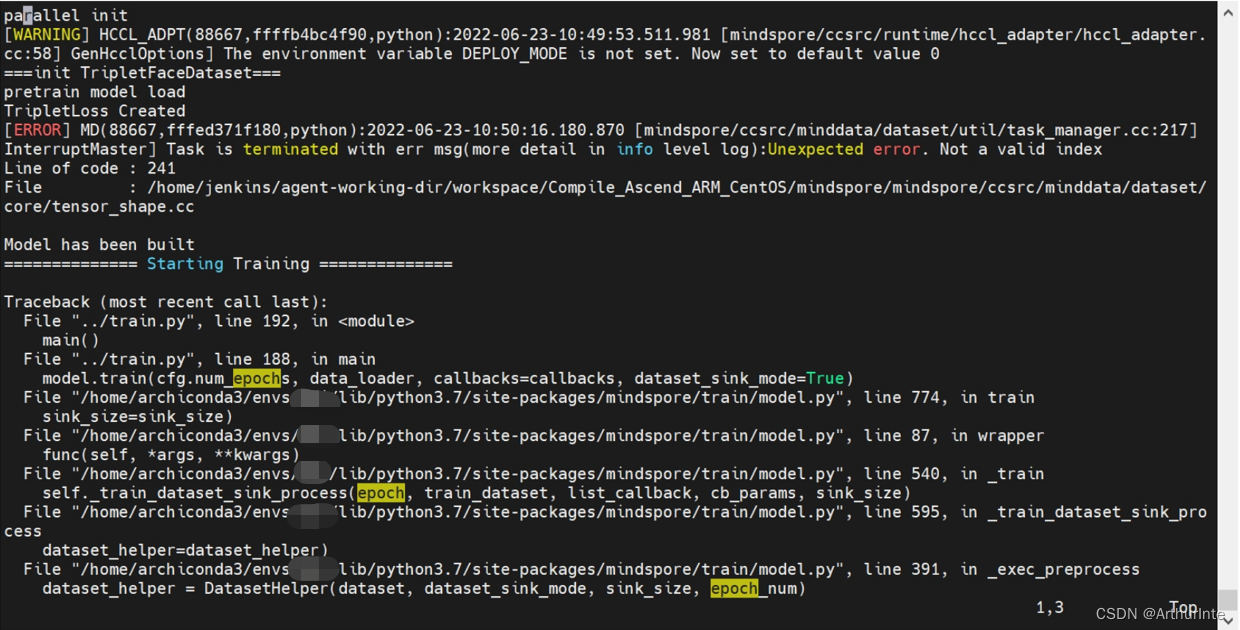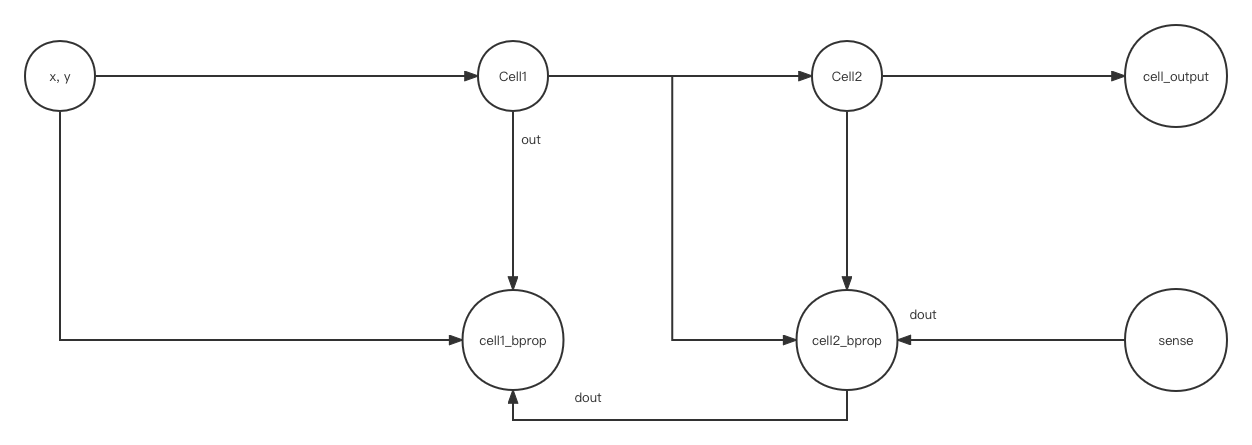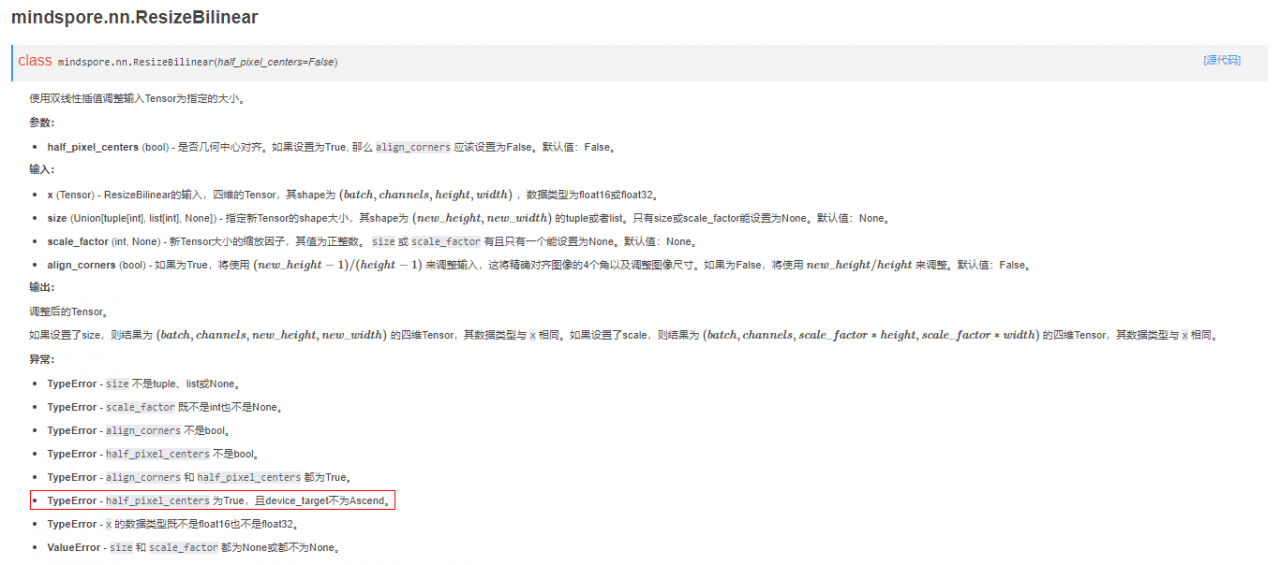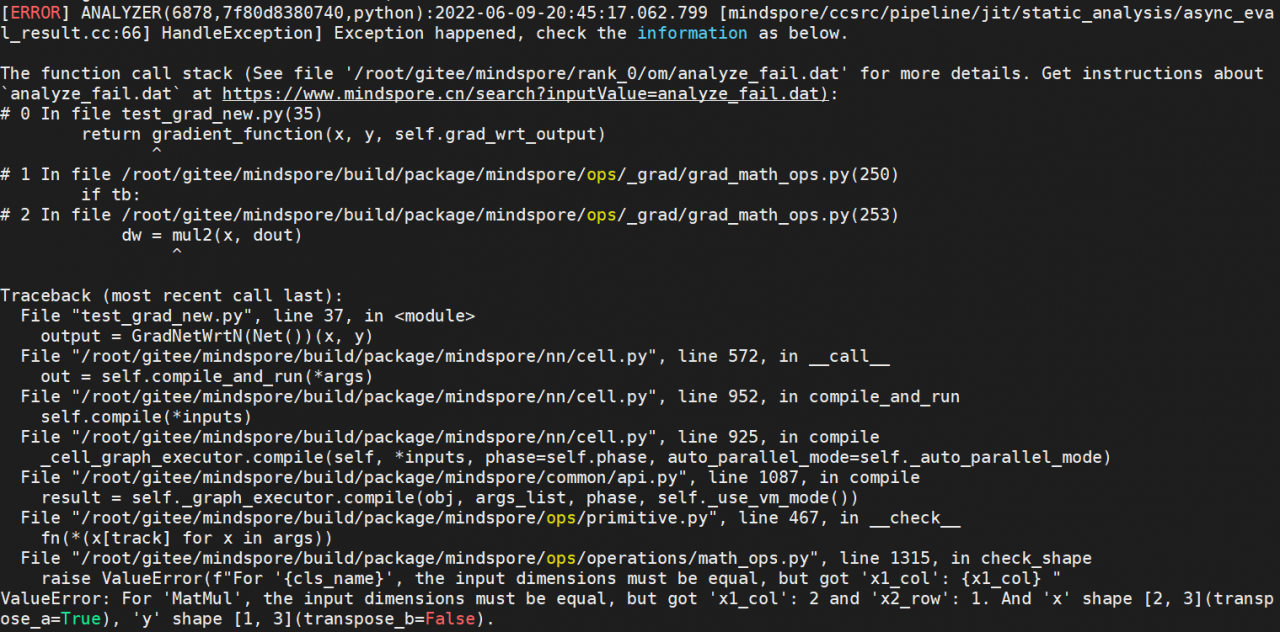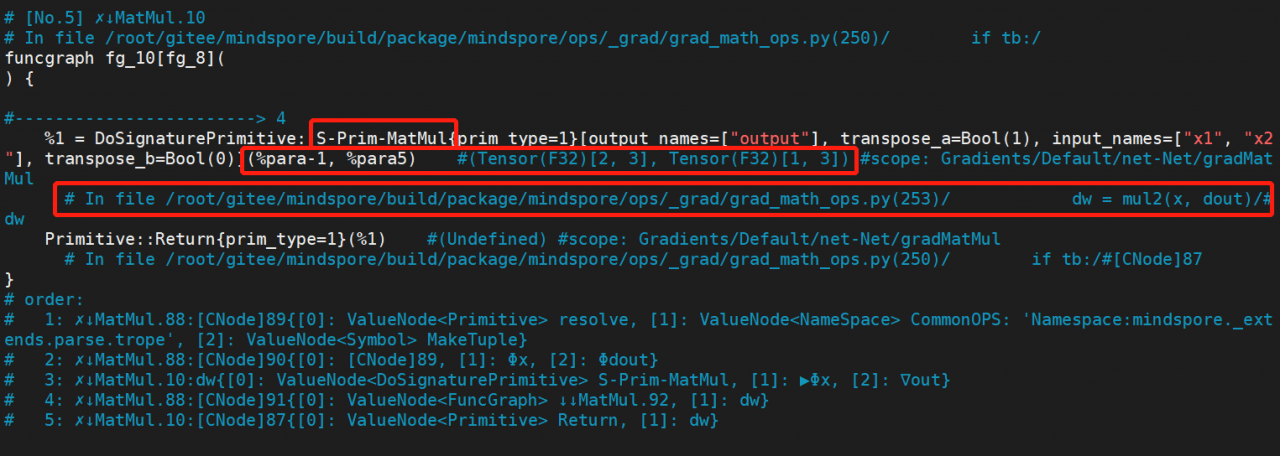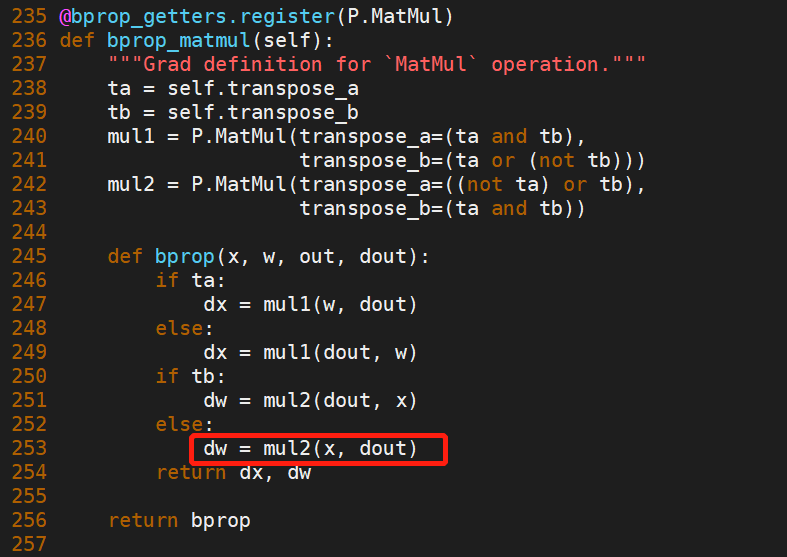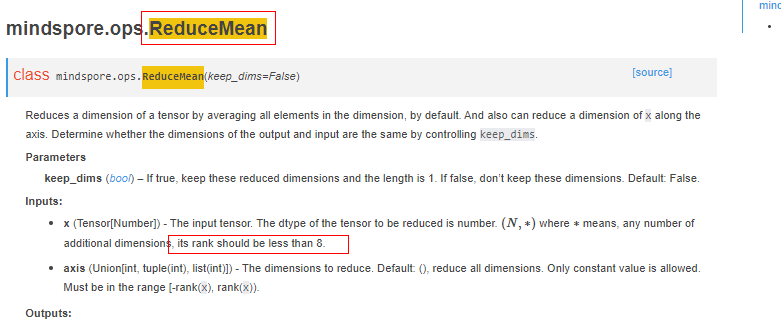1 Error description
1.1 System Environment
Hardware Environment(Ascend/GPU/CPU): GPU
Software Environment:
– MindSpore version (source or binary): 1.5.2
– Python version (e.g., Python 3.7.5): 3.7.6
– OS platform and distribution (e.g., Linux Ubuntu 16.04): Ubuntu 4.15.0-74-generic
– GCC/Compiler version (if compiled from source):
1.2 Basic information
1.2.1 Script
The training script normalizes the Tensor by constructing a BatchNorm single-operator network. The script is as follows:
01 class Net(nn.Cell):
02 def __init__(self):
03 super(Net, self).__init__()
04 self.batch_norm = ops.BatchNorm()
05 def construct(self,input_x, scale, bias, mean, variance):
06 output = self.batch_norm(input_x, scale, bias, mean, variance)
07 return output
08
09 net = Net()
10 input_x = Tensor(np.ones([2, 2]), mindspore.float16)
11 scale = Tensor(np.ones([2]), mindspore.float16)
12 bias = Tensor(np.ones([2]), mindspore.float16)
13 bias = Tensor(np.ones([2]), mindspore.float16)
14 mean = Tensor(np.ones([2]), mindspore.float16)
15 variance = Tensor(np.ones([2]), mindspore.float16)
16 output = net(input_x, scale, bias, mean, variance)
17 print(output)
1.2.2 Error reporting
The error message here is as follows:
Traceback (most recent call last):
File "116945.py", line 22, in <module>
output = net(input_x, scale, bias, mean, variance)
File "/data2/llj/mindspores/r1.5/build/package/mindspore/nn/cell.py", line 407, in __call__
out = self.compile_and_run(*inputs)
File "/data2/llj/mindspores/r1.5/build/package/mindspore/nn/cell.py", line 734, in compile_and_run
self.compile(*inputs)
File "/data2/llj/mindspores/r1.5/build/package/mindspore/nn/cell.py", line 721, in compile
_cell_graph_executor.compile(self, *inputs, phase=self.phase, auto_parallel_mode=self._auto_parallel_mode)
File "/data2/llj/mindspores/r1.5/build/package/mindspore/common/api.py", line 551, in compile
result = self._graph_executor.compile(obj, args_list, phase, use_vm, self.queue_name)
TypeError: mindspore/ccsrc/runtime/device/gpu/kernel_info_setter.cc:355 PrintUnsupportedTypeException] Select GPU kernel op[BatchNorm] fail! Incompatible data type!
The supported data types are in[float32 float32 float32 float32 float32], out[float32 float32 float32 float32 float32]; in[float16 float32 float32 float32 float32], out[float16 float32 float32 float32 float32]; , but get in [float16 float16 float16 float16 float16 ] out [float16 float16 float16 float16 float16 ]
Cause Analysis
Let’s look at the error message. In TypeError, write Select GPU kernel op[BatchNorm] fail! Incompatible data type!
The supported data types are in[float32 float32 float32 float32 float32], out[float32 float32 float32 float32 float32]; in[float16 float32 float32 float32 float32], out[float16 float32 float32 float32 float32]; , but get in [float16 float16 float16 float16 float16 ] out [float16 float16 float16 float16 float16 ], which probably means that the current input data type combination is not supported in the GPU environment, and explains what the supported data type combinations are: all are float32 or input_x is float16, and the rest are float32 . Check the input of the script and find that all are of type float16, so an error is reported.
2 Solutions
For the reasons known above, it is easy to make the following modifications:
01 class Net(nn.Cell):
02 def __init__(self):
03 super(Net, self).__init__()
04 self.batch_norm = ops.BatchNorm()
05 def construct(self,input_x, scale, bias, mean, variance):
06 output = self.batch_norm(input_x, scale, bias, mean, variance)
07 return output
08
09 net = Net()
10 input_x = Tensor(np.ones([2, 2]), mindspore.float16)
11 scale = Tensor(np.ones([2]), mindspore.float32)
12 bias = Tensor(np.ones([2]), mindspore.float32)
13 mean = Tensor(np.ones([2]), mindspore.float32)
14 variance = Tensor(np.ones([2]), mindspore.float32)
15
16 output = net(input_x, scale, bias, mean, variance)
17 print(output)
At this point, the execution is successful, and the output is as follows:
output: (Tensor(shape=[2, 2], dtype=Float16, value=
[[ 1.0000e+00, 1.0000e+00],
[ 1.0000e+00, 1.0000e+00]]), Tensor(shape=[2], dtype=Float32, value= [ 0.00000000e+00, 0.00000000e+00]), Tensor(shape=[2], dtype=Float32, value= [ 0.00000000e+00, 0.00000000e+00]), Tensor(shape=[2], dtype=Float32, value= [ 0.00000000e+00, 0.00000000e+00]), Tensor(shape=[2], dtype=Float32, value= [ 0.00000000e+00, 0.00000000e+00]))
3 Summary
Steps to locate the error report:
1. Find the line of user code that reports the error: 16 output = net(input_x, scale, bias, mean, variance);
2. According to the keywords in the log error message, narrow the scope of the analysis problem: The supported data types are in[float32 float32 float32 float32 float32], out[float32 float32 float32 float32 float32]; in[float16 float32 float32 float32 float32], out [float16 float32 float32 float32 float32]; , but get in [float16 float16 float16 float16 float16 ] out [float16 float16 float16 float16 float16 ]
3. It is necessary to focus on the correctness of variable definition and initialization.
